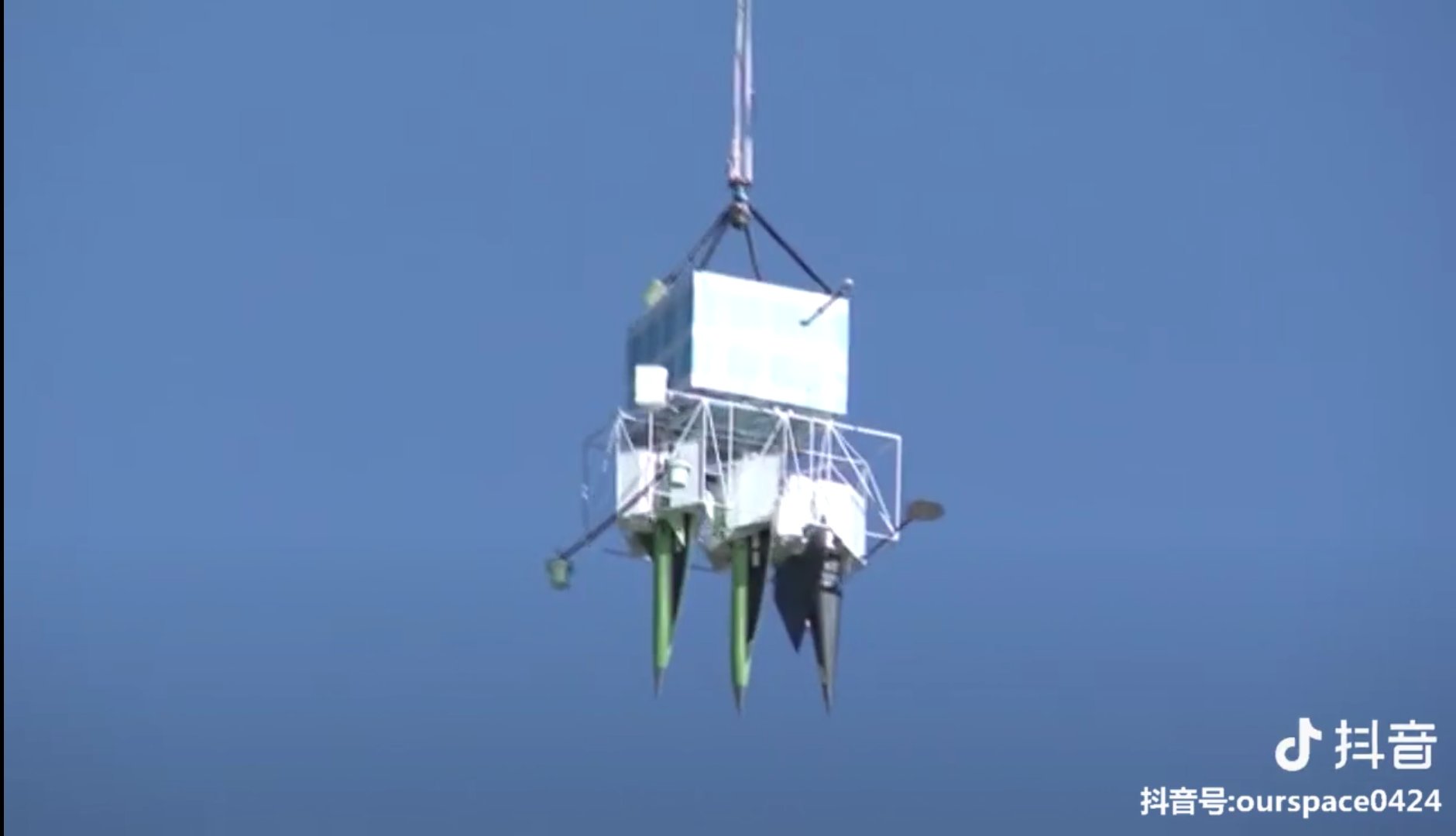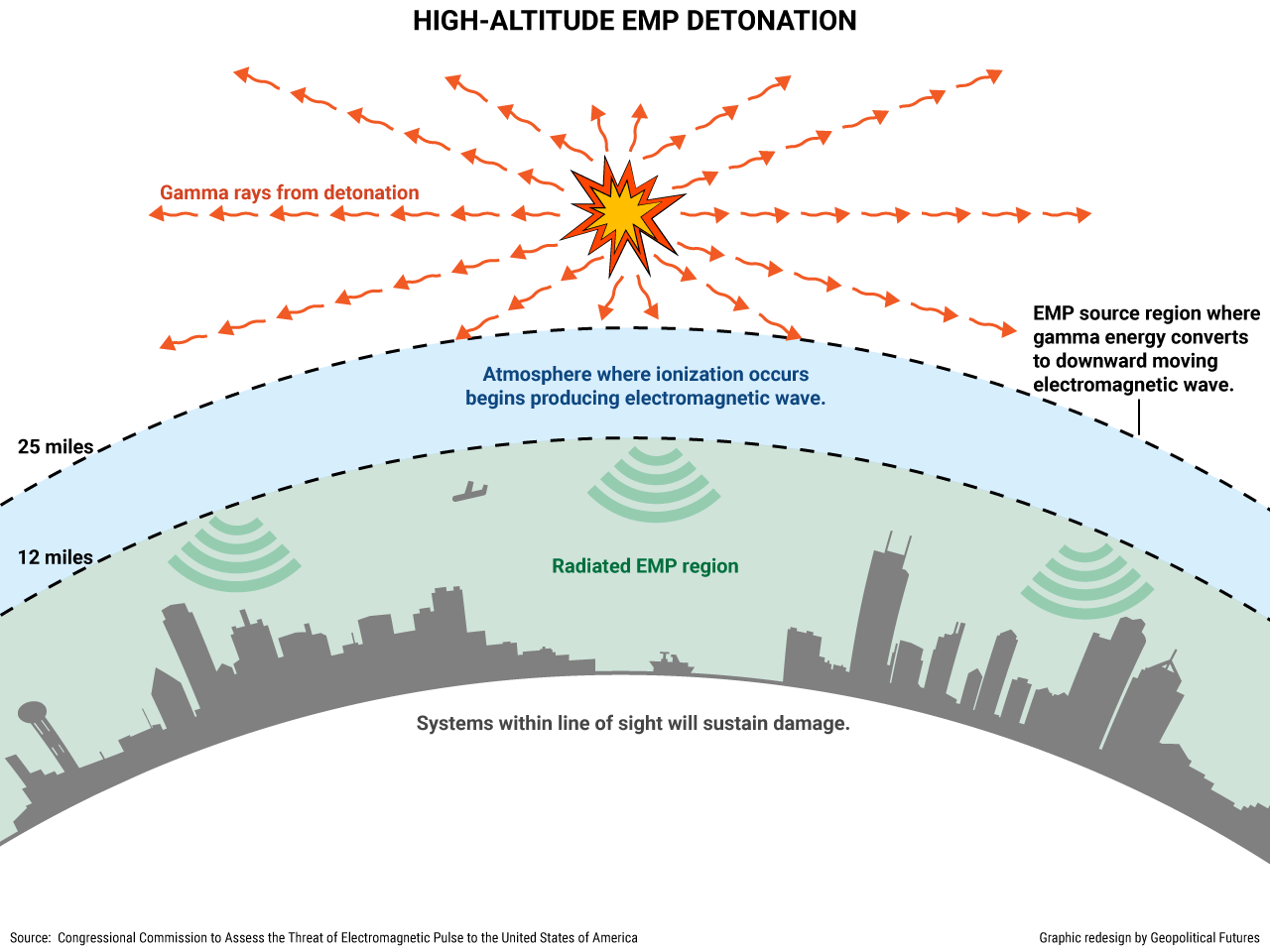The Chinese spy balloon, recently shot down by the US military, has captured the headlines in recent weeks, with other countries like India, Japan, and Taiwan currently looking into the possibility that similar Chinese balloons may have also violated their airspace in the past.
Even more concerning is that China could also use such balloons to deploy hypersonic weapons.
In 2018, Chinese state-owned television CCTV broadcast footage of a high-altitude balloon, not dissimilar from the one that traversed over the US and Canada last week, dropping what appeared to be hypersonic weapons.
The video showed a high-altitude balloon carrying three wedge-shaped payloads, which looked like hypersonic glide vehicles (HGVs), up to a certain height and then dropping them as part of a weapons test.
The Hong Kong-based South China Morning Post (SCMP) reported that the balloon-dropped HGVs were part of an effort to develop precision warheads for hypersonic weapons, which would give the Chinese military an “unstoppable nuclear-capable weapon.”
Screenshots from this Douyin short video. pic.twitter.com/XvhnzMhhY7
— dafeng cao (@dafengcao) September 21, 2018
The wedge-shaped payloads appeared to resemble the designs closely revealed in 2017 by CCTV, believed to be associated with China’s under-development DF-ZF HGV, which became operational in October 2019.
China just showed its hypersonic-BGV in a vid on 08 Oct. Probably a test design model, but AFAIK this is first pics of an actual object 1/ pic.twitter.com/EXIMHkXTEA
— Raymond Wang 🧧 (@soraywang) November 5, 2017
The DF-ZF HGV can travel between Mach 5 and 10 and perform evasive maneuvers to tackle the enemy defenses.
It can be carried by China’s Dong Feng-17 (DF-17) medium-range ballistic missile (MRBM), which can travel at a speed of Mach 5-10 and carry conventional or nuclear weapons. It has a range of 1,800-2,500km and a launch weight of 15,000kgs.
Reports also suggest that the HGVs dropped by the balloon in the footage may have contributed to the development of the hypersonic glide vehicle (HGV) secretly tested by China in July 2021, which sparked widespread concern and panic among the US military’s brass.
The glide vehicle traveled around 24,800 miles (39,911 km) in space before re-entering the atmosphere and striking the ground target, according to a US Defense Intelligence Agency (DIA) report.

The DIA report reads that the flight test lasted more than 100 minutes, making it “the greatest distance covered and longest flight time of any Chinese land-attack weapons system to date.”
Then-Vice Chair of the Joint Chiefs of Staff Gen. John Hyten said that the HGV, which was secretly tested, appeared to be intended for a “first-use” nuclear strike against the United States.
“They look like a first-use weapon,” Hyten said.
China Could Use Balloons For Nuclear EMP Strike
According to Paul Crespo, president of the Center for American Defense Studies, the balloon, which moved across the US and Canadian national airspace recently, could be a trial run for an attack using a balloon-mounted weapon. However, hypersonic missiles would probably not be China’s first choice.
“While China has tested hypersonic missiles launched from balloons in the past, that isn’t a likely use for these airships,” Crespo told The Epoch Times. “The biggest threat is sending one or more of these high altitude balloons over the US with a small nuclear EMP (Electro Magnetic Pulse) device.”

“Detonated at extremely high altitude, they could knock out power and communications across the US, wreaking widespread havoc for a year or more without firing a shot on the ground.”
As EurAsian Times has discussed at a great length earlier, experts in the US are concerned about the vulnerability of the country’s grid infrastructure to nuclear high-altitude electromagnetic pulse (HEMP) attacks, apparently due to the lack of sufficient attention from the Biden administration.
An American expert on EMP warfare, the late Dr. Peter Vincent Pry, published a report in July 2020, during his tenure as the Executive Director of the EMP Task Force on National and Homeland Security, in which he cites several Chinese military writings that talk about HEMP attacks against the US as a means of prevailing in a potential war with the US.

According to US military experts, a successful EMP attack over the East Coast could kill 90 percent of the population within a year of an attack, and it could take 18 months to restore the electricity grid and social order.
Around 99 nuclear reactors would likely melt down without electricity to cool them, and about 4.1 million people would have to displace from areas around the nuclear plants.
The US Is Also Developing Ways To Use Balloons As Weapons
Meanwhile, China is not alone in developing novel ways to weaponize high-altitude balloons.
The US Army is also known to have been working on the concept entailing a network of high-altitude balloons flying in the stratosphere, which begins at altitudes ranging from 23,000 to 66,000 feet, that could deploy swarms of drones, including loitering munitions, over hostile territory.
Also, the US Defense Department (DoD) is investing millions of dollars into high-altitude balloons capable of flying at altitudes of 60,000 – 90,000 feet, which it intends to use for surveillance and, eventually, maybe even for tracking hypersonic weapons of adversaries.
The DoD is interested in incorporating high-altitude balloons and commercial satellites in the kill chain, which could be through a number of different ways, such as using them as communication and datalink nodes, ISR (Intelligence, Surveillance, & Reconnaissance) assets, etc.










